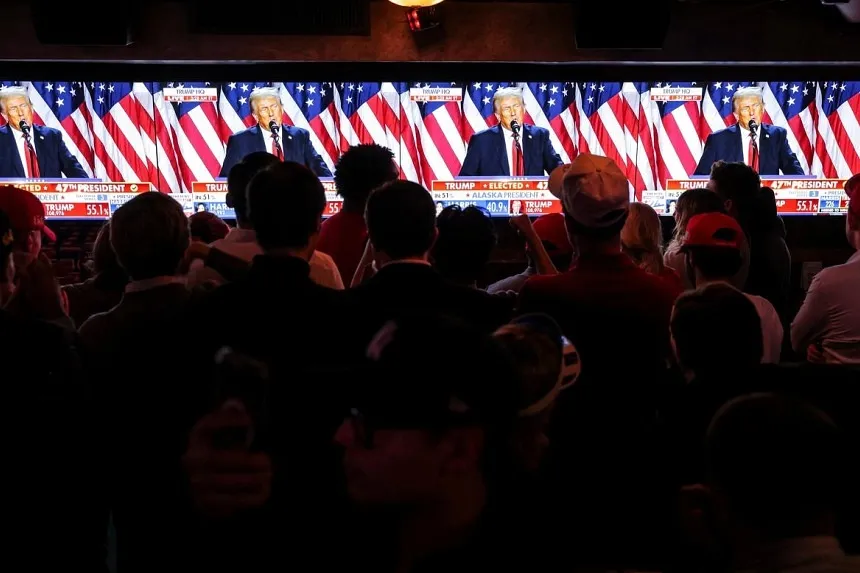WASHINGTON - Since winning the 2024 election, US President-elect Donald Trump has gone quiet on his false claims of voter fraud.
But the election denial movement he spawned isn't going away - and appears to be strengthening in some areas of the country.
A faction of local and national Republican officials who amplified Trump's claims of a rigged 2020 election say they will keep pushing for stark changes to how Americans vote ahead of the 2026 midterm elections. In interviews, they said they are responding to legitimate concerns about election integrity and suggesting appropriate reforms.
"The election denial movement has been evolving and shapeshifting in an effort to stay relevant," said Ms Lizzie Ulmer, a senior vice-president at States United Action, a group that tracks candidates who attack the credibility of US elections.
As a result, she added, "the movement has held onto power and influence."
The movement's agenda focuses on many of the debunked claims of voter fraud that Trump and his allies advanced after his failed 2020 re-election bid. These include requiring voters to show proof of citizenship, despite scant evidence of significant voting by illegal immigrants, and restricting mail-in voting and ballot drop boxes, neither of which have been linked to systemic fraud.
Ms Claire Zunk, a spokesperson for Trump and the Republican National Committee, said "common sense" election reforms are needed and Trump is "committed to keeping his promises and securing our elections nationwide."
Reuters interviewed more than 20 officials and advocates on both sides of the campaign for more restrictive voting laws, including figures in all seven battleground states, where even slight rule changes can influence turnout and elections.
The Nov 5 election delivered victory for scores of Republican candidates who publicly supported Trump's false claim that his loss to US President Joe Biden four years ago was due to voter fraud. As Trump tightened his grip on the party in 2025, that claim was central to his message. Trump often lashed out at party members seen as disloyal to him and his rigged election falsehoods. Echoing those claims was often a test of loyalty for Republicans.
Nationwide, a half-dozen candidates who denied the 2020 election results won statewide offices in 2025r, and 143 won races for the US House and Senate according to data from States United Action. Election deniers are also filling key roles in Trump's new administration.
